Whether your business is an LLC or incorporated, there is a lot of room for error when you are filing taxes. From missing potential money-saving tax credits to misreporting expenses or income, any mistake of omission or commission can get you in trouble with the IRS. In this post, we have compiled a list of the most common tax mistakes that small business accounting teams make.
1. Mixing Personal And Business Expenses
Commingling of personal and business accounts is one of the key errors many small business owners make. While having separate credit and bank accounts is not mandatory, it is recommended by most tax consultants for two reasons: it ensures more accurate small business accounting and it makes tax time much easier.
You should maintain an accurate balance sheet so your small business accounting team can easily identify the expenses. Failure to maintain separate financial accounts can lead to missed income and deductible business expenses.
2. Misclassifying Independent Contractors and Employees
The rules for deciding whether a person should be considered an independent contractor or an employee are not as hazy as you may think. Here are a few small business accounting tips for correct identification:
· Does your business provide supplies or tools at no additional cost to the individual or reimburse for expenses?
· Does your business state where, when, and how the individual performs the task they have been assigned? Are there any mandatory hours?
· Do you provide defined benefits or a contract, such as vacation time, dental benefits, insurance, pension, etc.?
3. Not Paying Fair Wages to Shareholders of an S-Corporation
If your business is organized as an S-Corp, then your employee-shareholders are required by the IRS to receive reasonable wages as taxable income. This payment must be made before non-wage distributions can be distributed since those are taxed in a different manner.
To put it simply, if the shareholder plays a day-to-day, active role in the management and/or operations of the business, they are considered an employee and must be paid a reasonable salary.
4. Not Planning Ahead
Business taxes are complicated and without an expert small business accounting team, it can be hard to figure out the correct thing to do. Consider being proactive and seeking the advice of a qualified CPA to plan ahead before the tax season.
A tax professional can help determine credits you may not be aware of, saving your business much more than the cost of their services. They can also help you better manage your small business accounting processes overall, making your business as well as the shareholders more financially confident.
5. Using The Wrong Tax Professional
If your accountant advises you to take write-offs you know you aren’t entitled to or to hide income, it means that the tax preparer is shady and can land you in major trouble with the IRS. If that “professional” is caught by the IRS, all of their clients may come under audit.
Additionally, by working with a tax professional who is not experienced or skilled enough, you may miss out on write-offs that you qualify for.
Hire A Small Business Accounting Expert & Avoid Unwanted Tax Consequences
At Remote Accounting Online, we assist businesses, start-ups, and organizations of every size with their tax and accounting needs. We are familiar with the tax laws across a wide range of industries and can advise you to be proactive in your tax planning for now and the future. Call us at 541-275-9954 or complete this online form for a consultation.


